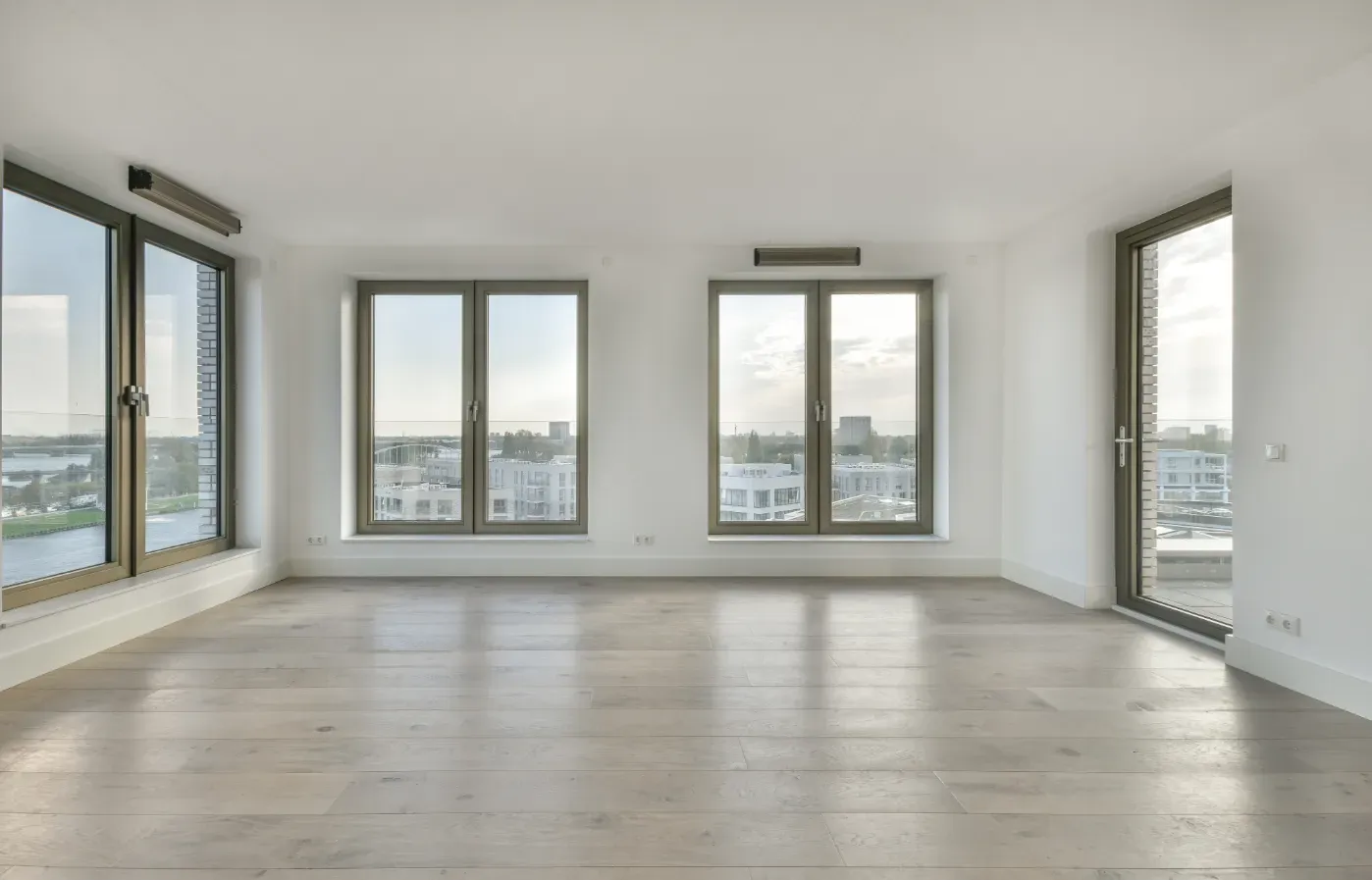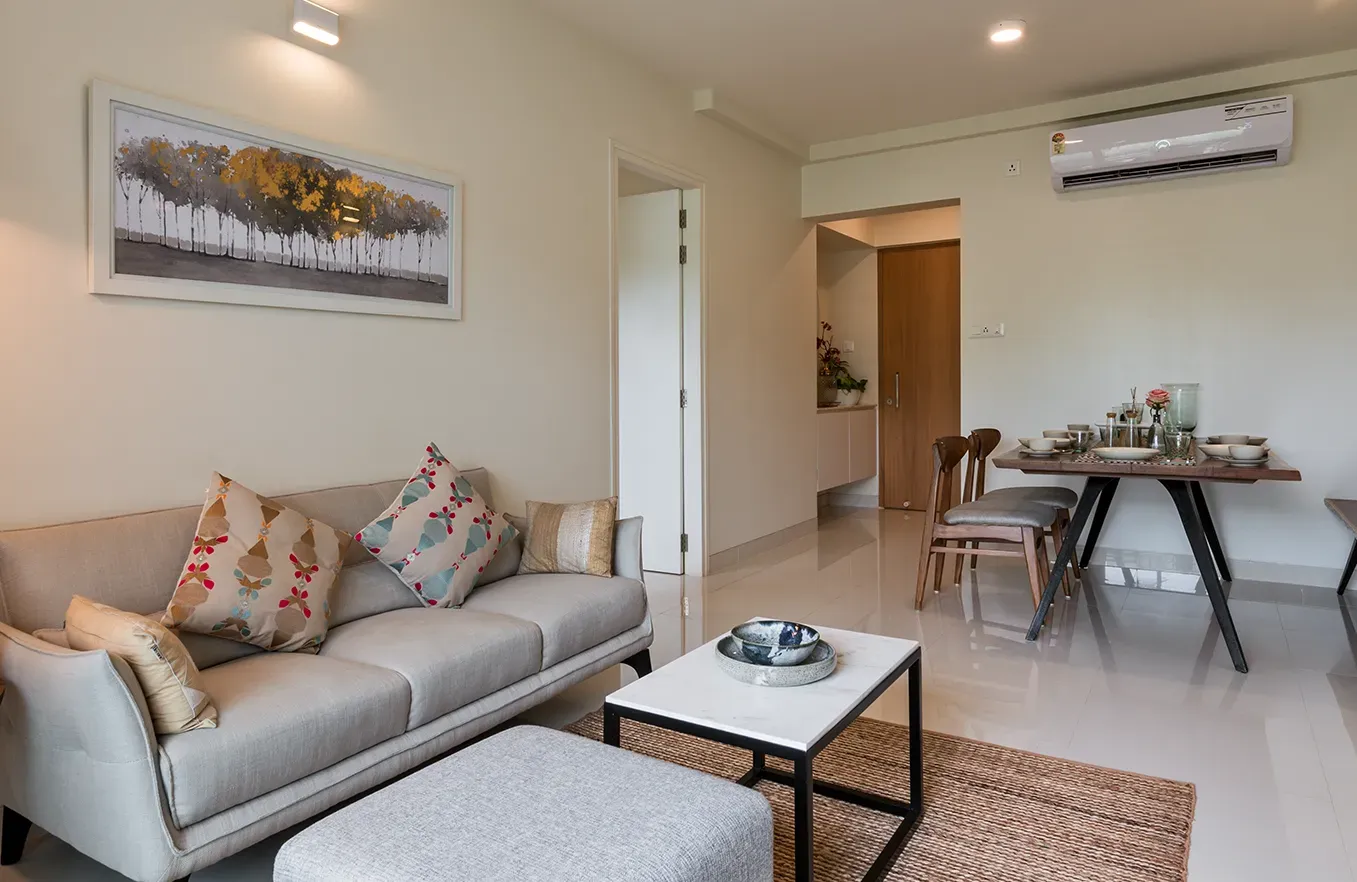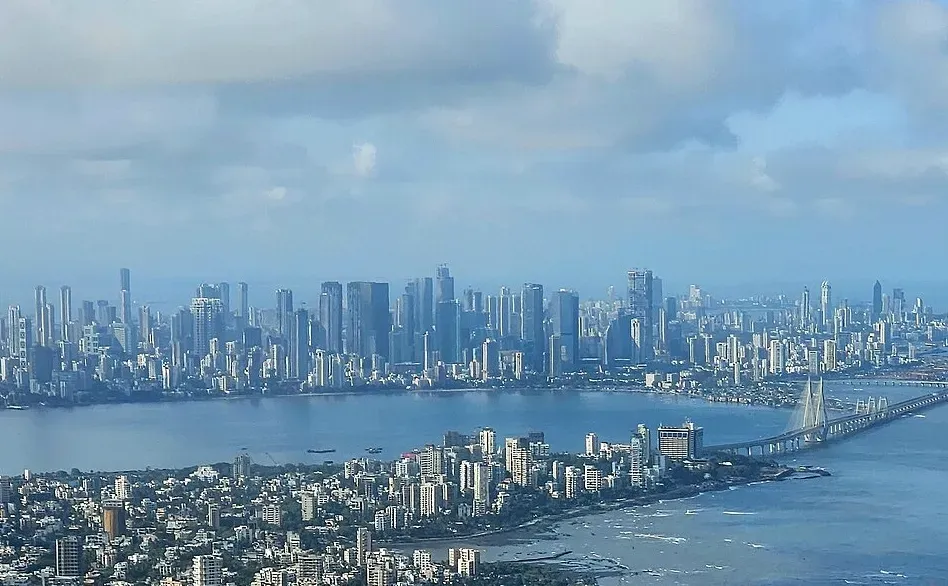Resale Potential of 1BHK Flats in Mumbai 2025

By
Shrusti Naik
Posted on September 30, 2025. 10 mins

Introduction

When you buy a 1 BHK apartment, especially in a high-cost city like Mumbai, one of the pivotal questions is: What will it be worth when you resell? The “resale potential” of a 1 BHK depends on appreciation trends, micro-market dynamics, infrastructure, demand-supply balance, and property condition.
This article explores the resale outlook for 1 BHK flats in Mumbai in 2025: what historical data suggests, key drivers and risks, how to identify high-resale micro-markets, and what buyers should focus on to maximise resale value. Also, check out If It's Worth Buying a 1BHK in Mumbai in 2025, or Should you Wait?
1. Mumbai Property Appreciation: A Snapshot
1.1 Historical & Recent Trends
- In Mumbai, capital values of completed properties rose by only ~1% YoY in 2024, while under-construction inventory appreciated ~10% YoY, per Savills Asia.
- Over the past four years (2021 to 2025), the average ticket price of properties sold in the Mumbai Metropolitan Region jumped 54%, from about ₹1.02 crore to ₹1.57 crore.
- MagicBricks reports that in Mumbai, average price per sq ft currently ranges ~ ₹ 22,962 / sq ft, with Q-on-Q growth ~3%.
- Housivity’s 2025 data places 1 BHKs in suburbs & mid zones at ₹ 60 lakh to ₹ 1.5 crore, and per-sq-ft in the range ₹ 18,000–₹ 28,000.
- Mumbai’s home sale registrations in H1 2025 reached 75,672 properties, up 4% YoY; revenue collections increased ~14% to ₹6,699 crore.
- According to the Hindustan Times, FY 2025 saw an 8.75% increase in sale agreement registrations in Mumbai versus FY 2024.
These trends reflect that while premium and under-construction projects are appreciating faster, “completed 1 BHKs” in mature zones may see slower growth unless bolstered by location, infrastructure, or scarcity.
2. Demand & Supply Dynamics for 1 BHKs in Mumbai
2.1 Drivers of Resale Demand
- Compact housing demand: Rising single / nuclear households, young professionals, and affordability pressures keep 1 BHK in demand, especially in suburbs.
- Ready-to-move / resale inventory preference: Buyers often prefer resale over waiting periods, giving resale 1 BHKs an edge.
- Connectivity & infrastructure: Proximity to transit (metro, highways), new roads, and redevelopment corridors increases resale appeal.
- Redevelopment boom: Mumbai is seeing a surge in redevelopment of aging societies - ~44,000 new homes (worth ~₹1.3 lakh crore) are in the pipeline. Redevelopment zones often uplift neighbourhood valuations.
- Scarcity of new land: In prime and inner suburbs, fresh land is scarce, making good resale 1 BHKs a de facto substitute.
2.2 Supply Challenges & Risks
- High unsold inventory: Mumbai has ~84,197 unsold flats worth ₹2,57,383 crore. Unsold stock dampens upside pressure.
- Slower capital value rise: Completed properties have seen modest growth (~1% YoY) in 2024 per Savills.
- Micro-segment shifts: Some reports suggest prices of very small 1 BHK units under pressure - in certain zones, small units declined ~5% annually while larger units saw 3–6% rise. Thus, resale potential is not universally assured, it depends heavily on micro-factors.
3. What Impacts Resale Value of a 1 BHK: Key Factors
Here’s a comparison of how various features influence resale:
| Feature | Positive Impact on Resale | Risks / Mitigating Factors |
|---|---|---|
| Location & Connectivity | Close to metro, highway, transit nodes attract buyers | If infrastructure delays occur, benefits may be deferred |
| Age & Condition | Well-maintained, recent renovation, good structural health | Older flats may need refurbishing to compete |
| Carpet / Layout Efficiency | A compact, usable layout (good carpet-to-carpet ratio) is attractive | Wasted areas, poor layouts reduce value |
| Amenities & Environment | Green space, security, well-managed society, low noise | If amenities are poorly maintained, it drags value |
| Legal & Documentation | Clear title, RERA compliance, no legal encumbrances | Title disputes or incomplete documentation kill dealability |
| Scarcity / micro-market dynamics | Micro-markets with limited supply enjoy premium | Overbuild / saturation in certain zones can stall resale |
| Proximity to redevelopment corridors | Redevelopment in vicinity tends to lift zone value | Redevelopment can also cause disruption / uncertainty |
4. Estimating Resale Appreciation: Sample Scenarios
Let’s create hypothetical scenarios for a 1 BHK resale over 5–10 years.
- Suppose you buy a 1 BHK in a suburb at ₹ 80 lakhs in 2025.
- Scenario A (Modest growth): 5% annual appreciation → value after 10 years ≈ ₹ 1.30 crore
- Scenario B (Strong growth, in redevelopment zone): 8% annual → value ≈ ₹ 1.73 crore
- Scenario C (Stagnant area): 2% annual → value ≈ ₹ 97 lakhs
Thus, in a favourable micro-market, resale gains can be compelling. In weaker zones, upside is muted.
5. Suburbs & Micro-Markets to Watch for 1 BHK Resale
Based on resale trends and affordability, these suburbs are being cited as good bets:
- Mira Road, Malad West, Dombivli West: resale listings are strong; connectivity improving.
- Thane / Navi Mumbai / Panvel: demand is shifting outward; better value ratios and infra development.
- Jogeshwari–Borivali belt: recently recorded the highest flat sales in Mumbai; strong demand. ([The Times of India][9])
- Emerging corridors along metro lines, expressways, and transit hubs.
These micro-markets combine relative affordability, growth potential, and investor interest.
6. How a Buyer Can Maximize Resale Potential for a 1 BHK
Here are practical tips:
- Choose the right micro-market over just a cheap zone: Proximity to infrastructure yields more.
- Inspect society management & amenities: A well-governed society retains value.
- Focus on layout & carpet efficiency: Buyers value usable space more than super built.
- Ensure clean legal title + documentation: No encumbrances, RERA registration, approvals.
- Keep the property well maintained: Periodic repairs, painting, avoid deferred maintenance.
- Consider future infrastructure corridors: If a metro or road is planned nearby, it is a multiplier.
- Time the resale smartly with market cycles: Sell when demand is strong, not at market bottoms.
7. Risks & Caveats to Be Wary Of
- Interest rate risk: If borrowing costs rise, buyer demand may cool.
- Overbuilding / saturation: Too many projects in the same zone can suppress pricing.
- Delay in infrastructure delivery: Promised connectivity may be delayed, undercutting premium.
- Changing buyer preferences: Larger homes, work-from-home, or experience features may shift demand.
- Economic downturns / policy shocks: Real estate cycles are sensitive to macro factors.
Hence, a neglected or speculative 1 BHK in a weak micro-market may see little value growth.
Conclusion & Takeaways

The resale potential of a 1 BHK in Mumbai is real, but uneven. In prime micro-markets with strong connectivity, infrastructure, good maintenance, and scarcity, upside can be substantial. But in peripheral or oversupplied zones, gains may be modest.
As a buyer, you should pick location wisely, ensure legal cleanliness, maintain the flat, and stay alert to infrastructure trends. The difference between an ordinary 1 BHK and a resale winner often lies in micro details.
Frequently Asked Questions
-
What is a reasonable annual appreciation rate for 1 BHK in Mumbai? In favorable micro-markets, 5–8% p.a. is possible. In mature zones, appreciation may be lower (1–3%) as we saw for completed inventory in 2024.
-
How long should I hold a 1 BHK to realize good resale gains? A hold period of 7–10 years allows compounding and infra effects to manifest. Short-term (<3 years) gains are risky and dependent on market cycles.
-
Does being closer to a metro or transit line guarantee better resale? It helps strongly, but guarantees depend on how well the connectivity is delivered, last-mile access, and whether surrounding development is compelling.
-
Will resale 1 BHKs always outperform new launches? Not always. If new launches in the same area bring better amenities, branding, or technology, they may command premium unless your resale flat is exceptionally well maintained.
-
Do resale flats attract worse loan / tax treatment? No, banks and tax authorities treat resale flats similarly if documentation and approvals are in order. However, stamp duty and registration costs apply on transfer.